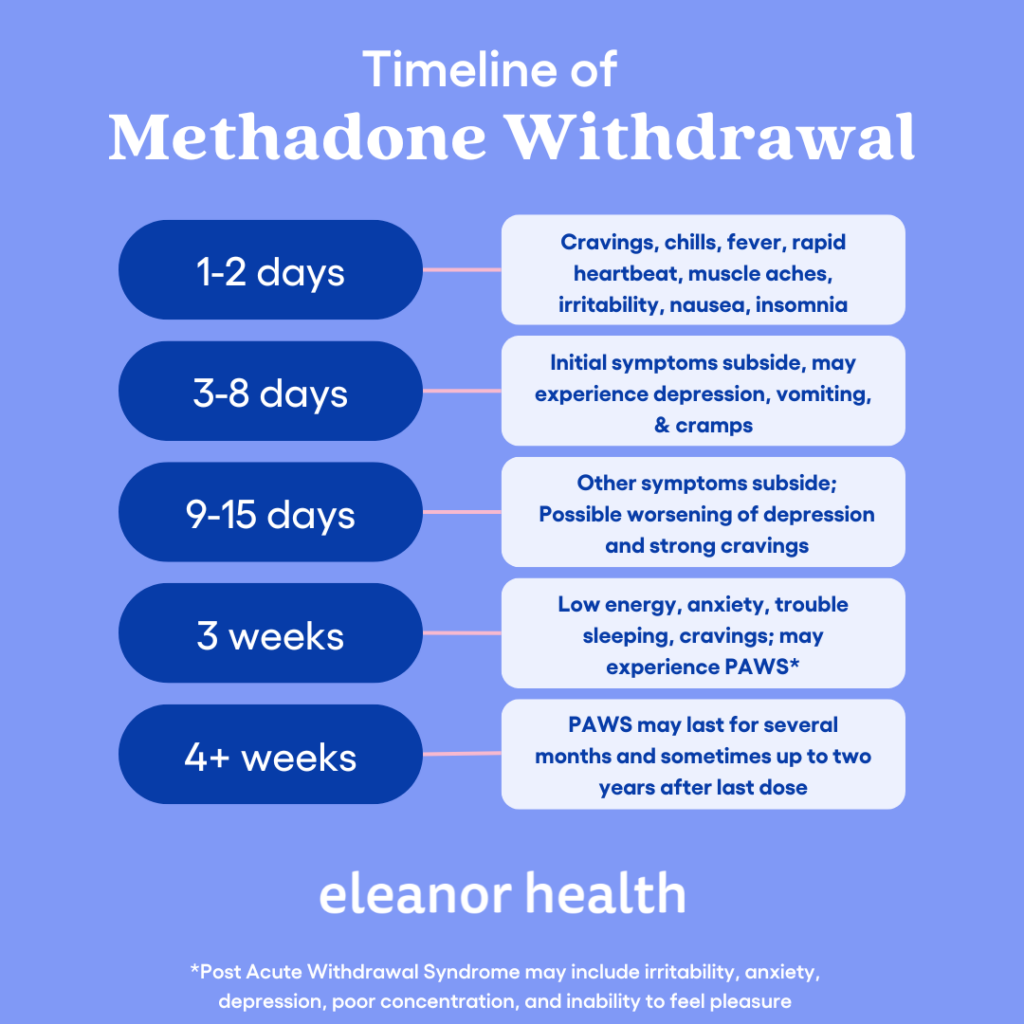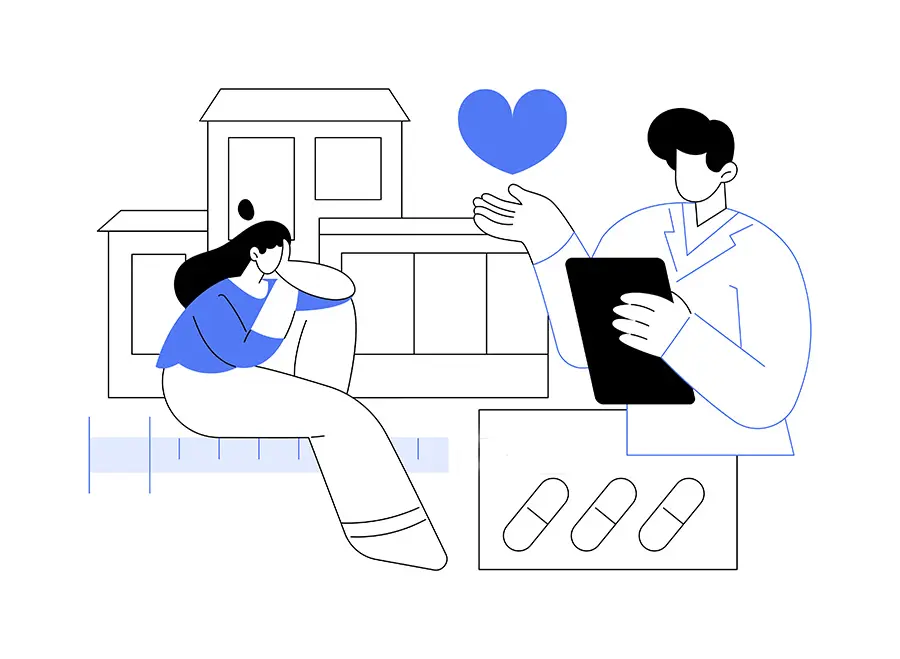Overdose is the leading cause of unintentional death in the U.S. However, this issue has only worsened after the COVID-19 outbreak. According to the Centers for Disease Control and Prevention (CDC), about 81,230 people died of an overdose in the U.S. from June 2019 to May 2020, the highest ever recorded in 12 months. And opioid use disorder (OUD) appears to be the main cause behind such overdose deaths.
The medical community has successfully identified and initiated various measures and treatment options to help fight the opioid crisis. And one of such treatment options is medications for opioid use disorder (MOUD), such as methadone. Methadone maintenance treatment (MMT) has shown considerable success and is increasingly used to help individuals struggling with an OUD live healthier sober lives. However, methadone’s risk of causing dependence and withdrawals has raised serious concerns regarding its efficacy as a treatment option.
Methadone, sold under brand names Methadose and Dolophine, is a prescription medication used to treat moderate to severe pain and opioid use disorder. Methadone was first approved by the U.S. Food and Drug Administration (FDA) to treat OUD in the late 1970s. Methadone is a synthetic opioid medication that functions by interacting with opioid receptors in the brain to reduce symptoms of opioid withdrawals. MMT is most effective when used in conjunction with behavioral therapies and counseling.
Methadone is a highly regulated medication that can only be prescribed through a methadone clinic. It is regarded as the gold standard for opioid dependence treatment and is included in the World Health Organization’s list of essential medicines.
According to the Substance Abuse and Mental Health Services Administration (SAMHSA), methadone is a relatively safe and effective medication when used as prescribed. However, since it’s still an opioid, prolonged use increases the risk of tolerance, dependence, and addiction to the medication.
The addictive nature of methadone may cause individuals to experience withdrawal symptoms upon quitting the medication abruptly. After prolonged use, the sudden absence of methadone triggers uncomfortable reactions while the body relearns to function without the medication again.
Symptoms of methadone withdrawal are similar to withdrawal from other opioids such as heroin and morphine but are usually moderate and flu-like. Some of the most common symptoms of methadone withdrawal are:
Methadone withdrawal can be a painful experience. Hence, individuals receiving MMT are gradually weaned off the medication at the end of their treatment under the guidance and supervision of their healthcare provider.

Methadone withdrawal symptoms usually appear within 24-36 hours after the last dose due to the long-acting nature of this medication. However, some may not even experience withdrawal symptoms until several days after the last dose. Symptoms of methadone withdrawals are most distressing during the first seven to 10 days of detox.
Methadone withdrawal typically follows the below timeline:
Methadone withdrawal is a slow and relatively long process. Withdrawal symptoms begin within 24-36 hours, peak within 7-10 days, and last anywhere between 2-3 weeks to up to six months. However, the withdrawal duration and severity can vary from person to person based on factors such as:
A person who uses methadone as prescribed for three months will generally go through a shorter withdrawal process than someone who has been using methadone for a year or misusing methadone in large doses.
Quitting methadone cold turkey is not life-threatening in most instances, but it’s not recommended. Methadone can cause severe withdrawal symptoms and hinder the recovery process. One of the biggest risks of getting off methadone cold turkey is its potential to cause a relapse. It can also trigger health complications that may require immediate medical attention, such as dehydration and electrolyte imbalance from vomiting, diarrhea, and aspiration from breathing stomach contents into the lungs. Thus, it’s best to seek the help of a healthcare professional to help taper off methadone in a safe and controlled way.
The safest and most efficient way to detox from methadone is to undergo a tapering-down program under the supervision of a medical professional. A methadone tapering program reduces doses over a certain period rather than quitting it cold-turkey to manage withdrawals. Methadone clinics generally provide people with such services at the end of treatment to ensure that they wean off the medication safely and successfully.
Some doctors may utilize certain medications during detox to ease symptoms of methadone withdrawal and shorten the duration of detox. Medical detox can include the use of medications such as Zofran, clonidine, and baclofen to mitigate anxiety, agitation, high blood pressure, nausea, and muscle pains.
During the weaning process if you decide you would like to continue being on opioid replacement therapy such as suboxone, this can be done if planned ahead with your medical provider
Although withdrawal from any addictive substance can be difficult, the long-term benefit of using methadone for opioid dependence treatment far outweighs its risks.
If you are interested in medication for addiction treatment and virtual recovery services, Eleanor Health could be just what you are looking for. We are an outpatient addiction treatment program that supports people in recovery through convenient, confidential and accessible services in Louisiana, Massachusetts, New Jersey, North Carolina, Ohio, Texas, and Washington. Fill out this form or call our recovery specialists to receive judgment-free assistance today.
 Identifying and Treating Symptoms of Benzodiazepine Withdrawal
Identifying and Treating Symptoms of Benzodiazepine Withdrawal
 Virtual Addiction Treatment: is it as Effective as In-Person Treatment?
Virtual Addiction Treatment: is it as Effective as In-Person Treatment?
 Detoxing from Opioids: How to Do it Safely
Detoxing from Opioids: How to Do it Safely